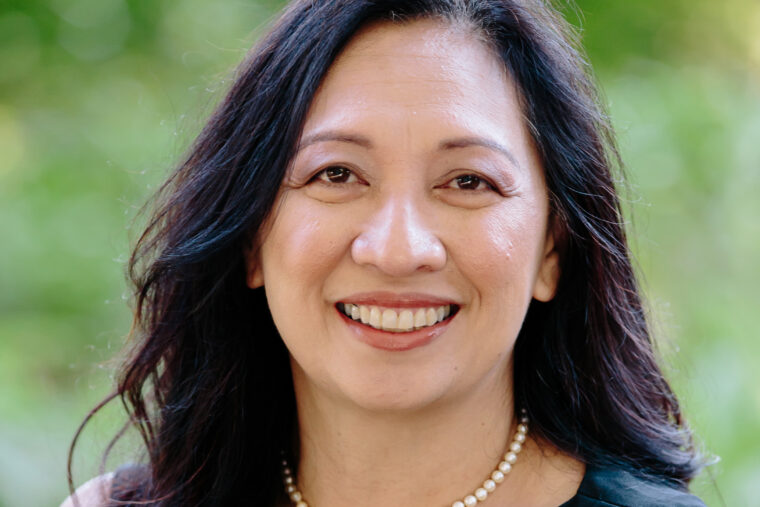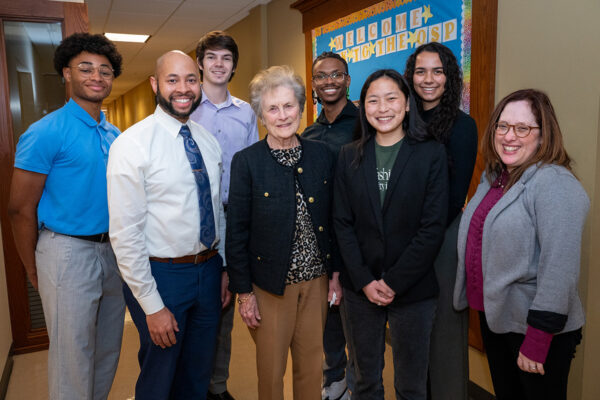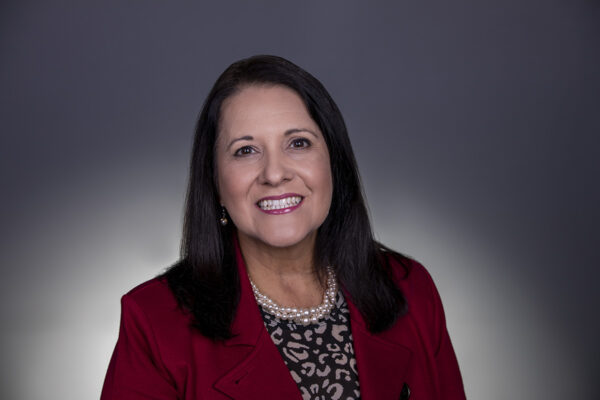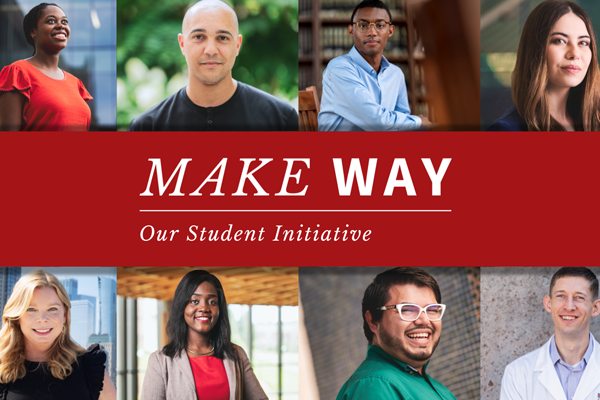Today’s debates about the value of college fail to weigh the importance of out-of-the-classroom experiences, said Anna Gonzalez, new board chair of the National Association of Student Personnel Administrators (NASPA) and vice chancellor for student affairs at Washington University in St. Louis.
She said the nation’s thousands of student affairs professionals do more than provide housing and cafeteria food. They support student physical and mental health, connect students to meaningful careers, develop leaders and teach students vital skills, from how to manage a budget to how to navigate hard conversations about fraught topics such as race and politics.
“When people say, ‘Google and Microsoft are hiring people now without bachelor’s degrees, I say, ‘Great, but coding is not the only skill you need to succeed and thrive in today’s workplace,’” said Gonzalez, who is known by students and colleagues as Dr. G. “Learning how to work in intense collaboration with different people from all over the place — that is the sort of real-world teaching we in student affairs provide.”
Here, Gonzalez explores what’s next in the field of student affairs.
We’re headed into another polarizing election season. What role can student affairs play in fostering productive conversations?
More and more universities are investing in intergroup dialogue programs, which have proven to be effective in helping students learn to communicate effectively and navigate complicated issues. At WashU, we have a one-credit program called “Dialogue Across Difference” that involves facilitated discussion around difficult topics like politics, interfaith and race. We really focus on honoring the I in DEI — inviting people into the conversation and not pointing your finger and saying, “You’re wrong.” I don’t know when, but somewhere along the way diversity, equity and inclusion came to mean that there is a right way and a wrong way to think.
I also think we’ve overpromised this sense of security. Yes, obviously, physical safety is paramount, but students are going to encounter ideas that they don’t agree with and make them uncomfortable. Yes, it’s hard to engage with people who have different values, but that’s the only way DEI work gets done.
Student affairs professionals are committed to serving the whole student. What are some new areas of focus?
Historically, the job of student affairs was conduct and advising. But as we have identified new needs, we are developing innovative programs to help students succeed at home, in the workplace and in their communities. Financial literacy is a perfect example. We know that students of all socioeconomic backgrounds benefit from financial education, and universities like The Ohio State are responding with programs that explore budgeting, saving and goal setting.
Another example is career. Research shows that students who have had a paid internship get better-paying jobs. So higher education institutions need to partner with companies and nonprofits to provide better opportunities for students. That has been a huge focus for Northwestern, and it’s working.
Leadership also is a new priority. Here at WashU, we have moved away from the concept of a natural leader — that some people are leaders and others aren’t — to offering all students strengths-based leadership programs. In the past, leadership programs have been the purview of business schools, but I believe this will be a big area of growth at universities nationwide.
How will student affairs leverage new advances in technology?
Telehealth is going to continue to be huge for schools that have in-person services and for smaller schools who are experiencing budget crunches. Telehealth has expanded beyond reacting to crisis situations to offering educational components and health promotion programs. Some telehealth services also are offering opportunities to faculty and staff who work with students and need tips.
Dining services also are finding new ways to use technologies. Providers like Bon Appetit and Sodexo already have developed robots to deliver food. Some even deliver birthday cakes and sing. They really make the students smile.
And, of course, there are a lot of ways that student affairs can use artificial intelligence (AI). That’s scary for some of us because student affairs is such a high-touch field. We’re here because we like engaging with students. So we need to figure out how to use AI in a way that allows us to focus on what matters. Can we use AI to help students write their resumes so a career engagement coach can help them explore their why and purpose? Can AI help a student learn how to run a meeting so we work on developing leadership skills?
In your inaugural remarks as NASPA board chair, you noted that mid-career professionals are leaving the field. What is happening here?
Yes — across the country, universities are seeing higher rates of attrition among professionals who have been in the field five years. For some, it’s because they aren’t seeing professional growth. Another reason is the lack of flexibility. There are some places that are now 100% in person for everyone, and that is causing people to leave.
I also hear from colleagues across the nation that they have no way to influence academic policies that impact student health and well-being. So I urge universities to give professionals opportunities to learn. For instance, we know we need more skills to understand Islamophobia and antisemitism. Give us the tools and count that as work. Also, let’s find new ways to incentivize student affairs staff. Some institutions like the University of Hawaii and some community colleges have tenure for staff. That may not be a workable option for a lot of schools, but could we provide the same percentage increase for staff that we do for faculty? Lastly, when you are making decisions, talk to us. We are experts, and we need to be at the table.




